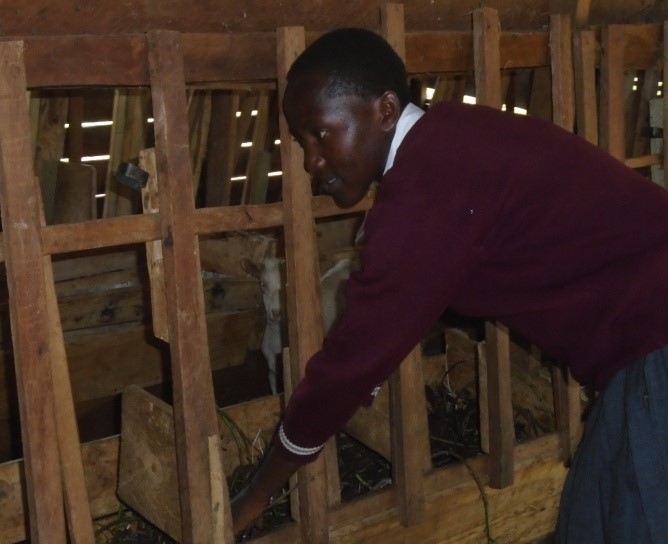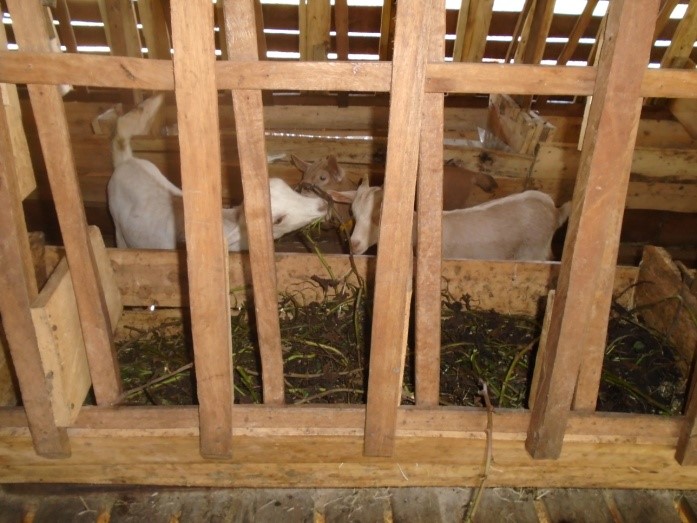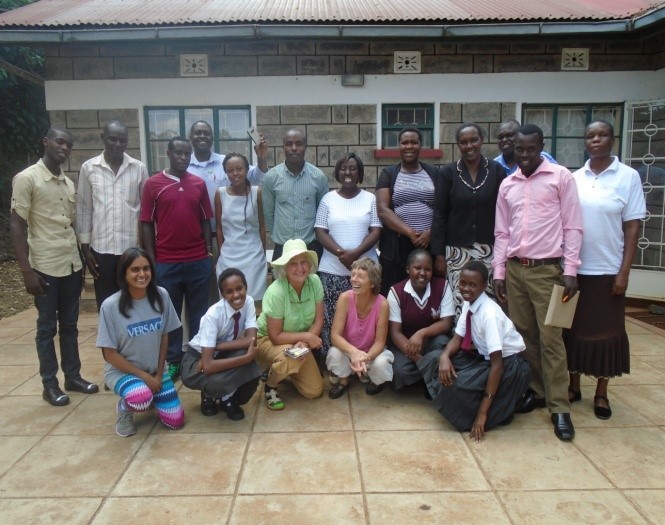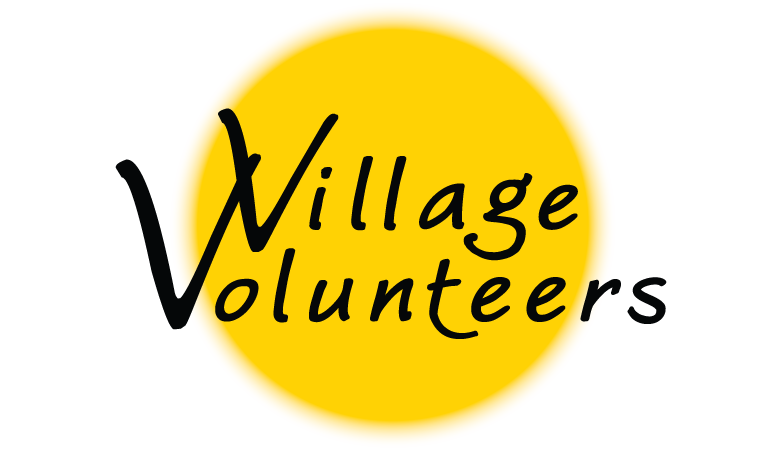Last year Village Volunteers helped raise funds to establish a goat dairy farm at Lenana Girls High School (Kitale, Kenya) through the annual WASSA Thanksgiving Day Dance, held in Seattle, WA. Thanks to generous donations, Common Ground for Africa (the umbrella organization under which comes Lenana HS) was able to construct a dairy shade on school premises, which serves as a business model and training ground in goat rearing and animal husbandry for the local community. Through the dairy, prospective (student) farmers and other locals are trained in practical experiences and marketing strategies around running a sustainable income generating goat dairy. Below is a report by CGA director Joshua Machinga on the goals and successes of the goat dairy project:
Lenana Girls High School fosters student’s innate drive to learn and explore the world. We cultivate a sense of connection to each other and to our surroundings. Students develop a sense of belonging to a nurturing community that remains with them throughout life. The Dairy Goat Project initiation at school has strengthened these efforts. The objectives of the Goat Dairy Project are:
- To increase the quality of life amongst lower income families and people living with AIDS in and around the school through sharing of the first off springs of dairy goats.
- To support sustainable quality goat dairy farming critical to climate change and adaptation.
- To provide practical experiences to students and boost academic performance in examinations (Biology, Agriculture, Home Science and Business subjects)
- To provide income to help in the running of school
- To provide students with quality nutrition- fresh milk, mala (sour milk), milk products such cheese and meat.
- To learn how to use manure and urine to fertilize the gardens and the farm.
- To promote goat dairy sector in Kenya thus creating employment for the youths and other lower income earners.

 The local farmers and students have learned that the handling of goats plays an important role in the semi-stall feed goat farming method. It is one of the main factors responsible for a successful dairy goat project. New goat farmers must have some previous experience of goat breeding or should have workers on his/her farm that have some knowledge regarding goat farming. Handling goats is a big responsibility as a business but have so many benefits. They are learning to:
The local farmers and students have learned that the handling of goats plays an important role in the semi-stall feed goat farming method. It is one of the main factors responsible for a successful dairy goat project. New goat farmers must have some previous experience of goat breeding or should have workers on his/her farm that have some knowledge regarding goat farming. Handling goats is a big responsibility as a business but have so many benefits. They are learning to:
- Provide balanced nutrition to their animals
- Provide proper vaccinations for the goats.
- Identify a specific symptom of a disease before it spreads to other animals on the farm.
- Properly milk the goats, especially goats who miscarry.
- Proper clean the floor where the goats rest
These are only a few aspects to explain the handling of goats; there are lots of other things too which goat farmers have to consider while breeding.

Cheese making workshop
Three motivated students and two staff members had an opportunity to attend a cheese making workshop at Manor House Agricultural Center from March 23rd to the 26th 2016. The workshop was facilitated by Britta Arste from France and other local dairy experts. It was timely as we were in the middle of implementing the dairy project. The experienced gained will go a long way ensuring the success of the project.
The goat dairy project has been a blessing to the local community and the school as it has engaged and promoted the development of local, sustainable agricultural initiatives in many villages. Several local people are saving funds to buy goats, and some have set aside patches of land for the goats to graze on, and have planted Tithonia as fodder. By helping empower local farmers in this way, the goat dairy project is helping build robust, independent and food-secure communities in Kenya.
Thank you, Joshua, for sharing updates of this impacting project with us!
